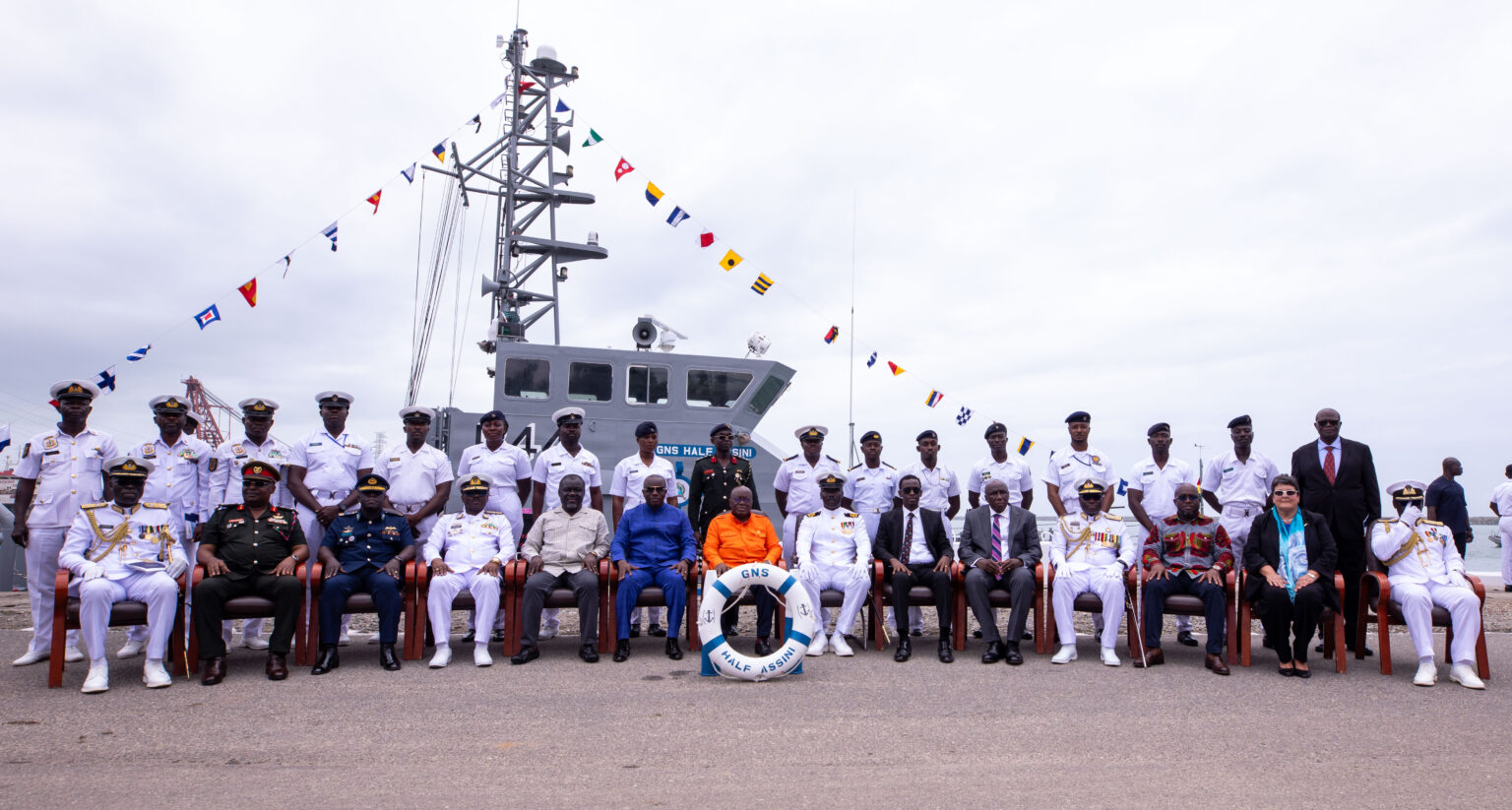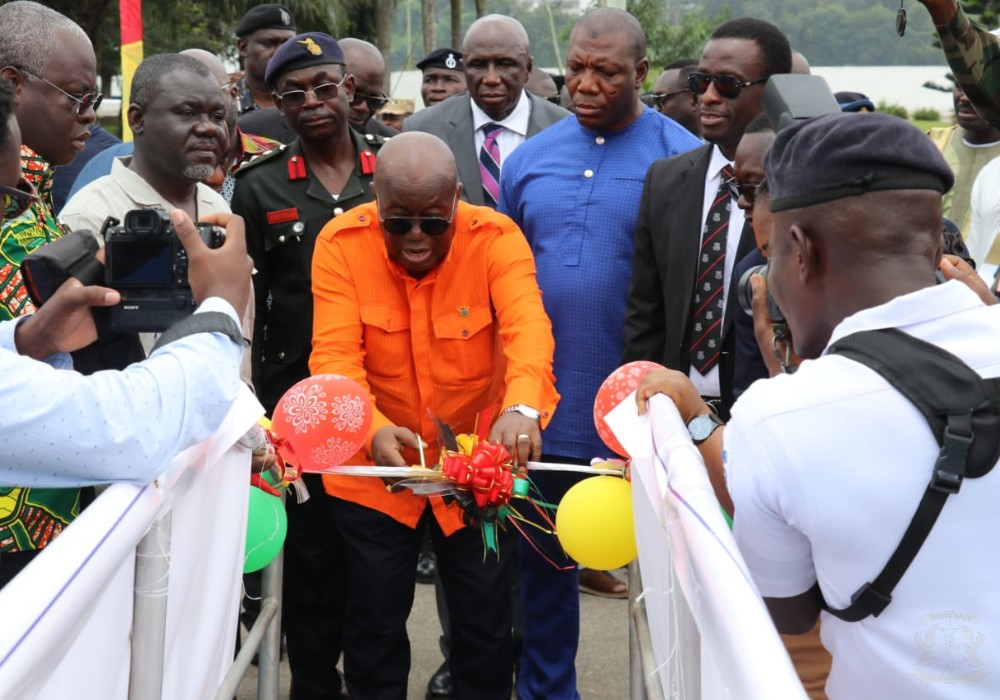ADF STAFF
The Ghana Navy in early September commissioned six vessels into service as it faces multiple maritime security challenges.
The United States government donated four of the vessels. They include two 27-meter Marine Protector class patrol ships, which are former U.S. Coast Guard vessels, and two 12-meter Defender class patrol boats.
The vessels were commissioned during a ceremony at Sekondi Naval Base attended by Ghanaian President Nana Akufo-Addo, Ghanaian defense leaders and members of the Ghana Armed Forces (GAF).
“I am aware of the enormous responsibility on the Navy in seeing to it that the maritime spaces of Ghana are safe and secured,” Akufo-Addo said at a commissioning ceremony. “That is why we are taking steps to retool the Ghana Navy.” The vessels are meant to help curb the converging threats of piracy and illegal unreported and unregulated (IUU) fishing in Ghana and the Gulf of Guinea, as West Africa has emerged as the world’s hotspot for illegal fishing.
The problem of IUU fishing is acute in Ghana, where small pelagic fish populations, such as sardinella, have dropped 80% in the past two decades, according to the Environmental Justice Foundation. One species, sardinella aurita, is fully collapsed, meaning the fish population is in steep decline.

More than 100,000 fishermen and 11,000 canoes operate in the country, but average annual income has dropped by as much as 40% per artisanal canoe in the past 15 years or so, according to the foundation. The decimated fish stocks cause prices to soar and drive food insecurity.
The U.S. government has pledged $24 million over five years to help Ghana’s Ministry of Fisheries and Aquaculture install electronic monitoring systems on trawlers licensed to fish in Ghana. The money will also help the ministry designate Marine Protected Areas to restrict fishing and protect ecosystems and sea life.
“The defense of our waters matters not only to us but to our partners as well,” Ghanaian Defense Minister Dominic Nitiwul said at the commissioning ceremony. “The safety, the health and the wealth of the oceans are intertwined and transnational. It is therefore pleasing to see our partners taking keen interests in our security sector through capacity building and equipment upgrades.”
Piracy has reemerged as a threat in West Africa after years of declining attacks. There were 81 piracy incidents in the region in 2020, 34 in 2021 and just three last year. Officials reported five incidents in the first quarter of this year and nine in the second quarter, according to the International Chamber of Commerce’s International Maritime Bureau.
In late June, members of a cargo ship anchored in Takoradi, Ghana, reported that three pirates boarded their vessel. The crew sounded an alarm that scared off the pirates, but not before they had stolen goods from the ship, according to a report by The Maritime Executive.

“Secure waters are key to Ghana’s prosperity,” U.S. Ambassador Virginia Palmer said during the commissioning ceremony. “These vessels will help deny pirates, traffickers and other criminals the use of the sea for their illegal activities, making Ghana and the region not just safer but more prosperous.
The other vessels commissioned in September include an oil spill response vessel for the Ghana Maritime Authority and a locally manufactured landing craft.
Ghanaian Transport Minister Kwaku Ofori Asiamah said the commissioning of the oil spill response vessel — christened after pioneering Ghanaian businesswoman Esther Afua Ocloo — was a significant milestone as it will boost efforts to create a vibrant, secure maritime ecosystem damaged by decades of overfishing and strengthen the blue economy.
The vessel has a modern oil spill recovery system, an oil spray dispersant system capable of handling spills in a harbor and offshore, and two drones used to identify activities and oil spills in Ghanaian waters.

